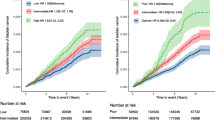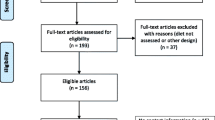Abstract
Purpose
Bladder cancer is one of the top five cancers diagnosed in the U.S. with a high recurrence rate, and also one of the most expensive cancers to treat over the life-course. However, there are few observational, prospective studies of bladder cancer survivors.
Methods
The Bladder Cancer Epidemiology, Wellness, and Lifestyle Study (Be-Well Study) is a National Cancer Institute-funded, multi-center prospective cohort study of non-muscle-invasive bladder cancer (NMIBC) patients (Stage Ta, T1, Tis) enrolled from the Kaiser Permanente Northern California (KPNC) and Southern California (KPSC) health care systems, with genotyping and biomarker assays performed at Roswell Park Comprehensive Cancer Center. The goal is to investigate diet and lifestyle factors in recurrence and progression of NMIBC, with genetic profiles considered, and to build a resource for future NMIBC studies.
Results
Recruitment began in February 2015. As of 30 June 2018, 1,281 patients completed the baseline interview (774 KPNC, 511 KPSC) with a recruitment rate of 54%, of whom 77% were male and 23% female, and 80% White, 6% Black, 8% Hispanic, 5% Asian, and 2% other race/ethnicity. Most patients were diagnosed with Ta (69%) or T1 (27%) tumors. Urine and blood specimens were collected from 67% and 73% of consented patients at baseline, respectively. To date, 599 and 261 patients have completed the 12- and 24-month follow-up questionnaires, respectively, with additional urine and saliva collection.
Conclusions
The Be-Well Study will be able to answer novel questions related to diet, other lifestyle, and genetic factors and their relationship to recurrence and progression among early-stage bladder cancer patients.


Similar content being viewed by others
References
American Cancer Society (2016) Cancer facts & figs. 2016. Atlanta, American Cancer Society
Botteman MF, Pashos CL, Redaelli A, Laskin B, Hauser R (2003) The health economics of bladder cancer: a comprehensive review of the published literature. Pharmacoeconomics 21(18):1315–1330
Avritscher EB, Cooksley CD, Grossman HB, Sabichi AL, Hamblin L, Dinney CP, Elting LS (2006) Clinical model of lifetime cost of treating bladder cancer associated complications. Urology 68(3):549–553
Barocas DA, Globe DR, Colayco DC, Onyenwenyi A, Bruno AS, Bramley TJ, Spear RJ (2012) Surveillance and treatment of non-muscle-invasive bladder cancer in the USA. Adv Urol 2012:421709
Josephson DY, Pasin E, Stein JP (2006) Superficial bladder cancer: part 1. Update on etiology, classification and natural history. Expert Rev Anticancer Ther 6(12):1723–1734
Kaufman DS, Shipley WU, Feldman AS (2009) Bladder cancer. Lancet 374(9685):239–249
Lotan Y, Kamat AM, Porter MP, Robinson VL, Shore N, Jewett M, Schelhammer PF, deVere White R, Quale D, Lee CT (2009) Key concerns about the current state of bladder cancer: a position paper from the Bladder Cancer Think Tank, the Bladder Cancer Advocacy Network, and the Society of Urologic Oncology. Cancer 115(18):4096–4103
Tang L, Zirpoli GR, Guru K, Moysich KB, Zhang Y, Ambrosone CB, McCann SE (2010) Intake of cruciferous vegetables modifies bladder cancer survival. Cancer Epidemiol Biomarkers Prev 19(7):1806–1811
Tang L, Zhang Y (2004) Isothiocyanates in the chemoprevention of bladder cancer. Curr Drug Metab 5(2):193–201
Tang L, Zirpoli GR, Guru K, Moysich KB, Zhang Y, Ambrosone CB, McCann SE (2008) Consumption of raw cruciferous vegetables is inversely associated with bladder cancer risk. Cancer Epidemiol Biomarkers Prev 17(4):938–944
Bhattacharya A, Tang L, Li Y, Geng F, Paonessa JD, Chen SC, Wong MK, Zhang Y (2010) Inhibition of bladder cancer development by allyl isothiocyanate. Carcinogenesis 31(2):281–286
Munday R, Mhawech-Fauceglia P, Munday CM, Paonessa JD, Tang L, Munday JS, Lister C, Wilson P, Fahey JW, Davis W, Zhang Y (2008) Inhibition of urinary bladder carcinogenesis by broccoli sprouts. Cancer Res 68(5):1593–1600
Tang L, Zhang Y (2004) Dietary isothiocyanates inhibit the growth of human bladder carcinoma cells. J Nutr 134(8):2004–2010
Kwan ML, Garren B, Nielsen ME, Tang L (2018) Lifestyle and nutritional modifiable factors in the prevention and treatment of bladder cancer. Urol Oncol. https://doi.org/10.1016/j.urolonc.2018.03.019
Gilbert SM, Wood DP, Dunn RL, Weizer AZ, Lee CT, Montie JE, Wei JT (2007) Measuring health-related quality of life outcomes in bladder cancer patients using the Bladder Cancer Index (BCI). Cancer 109(9):1756–1762
Thomson CA, Newton TR, Graver EJ, Jackson KA, Reid PM, Hartz VL, Cussler EC, Hakim IA (2007) Cruciferous vegetable intake questionnaire improves cruciferous vegetable intake estimates. J Am Diet Assoc 107(4):631–643
Acknowledgments
We thank all Be-Well Study staff, and most importantly, the study participants. The Be-Well Study is supported by the National Cancer Institute (R01CA172855). The contents are solely the responsibility of the authors and do not necessarily represent the official views of the funding agency.
Author information
Authors and Affiliations
Corresponding author
Ethics declarations
Conflict of interest
The authors declare no potential conflicts of interest.
Additional information
Publisher’s Note
Springer Nature remains neutral with regard to jurisdictional claims in published maps and institutional affiliations.
Rights and permissions
About this article
Cite this article
Kwan, M.L., Kushi, L.H., Danforth, K.N. et al. The Be-Well Study: a prospective cohort study of lifestyle and genetic factors to reduce the risk of recurrence and progression of non-muscle-invasive bladder cancer. Cancer Causes Control 30, 187–193 (2019). https://doi.org/10.1007/s10552-019-1130-8
Received:
Accepted:
Published:
Issue Date:
DOI: https://doi.org/10.1007/s10552-019-1130-8




